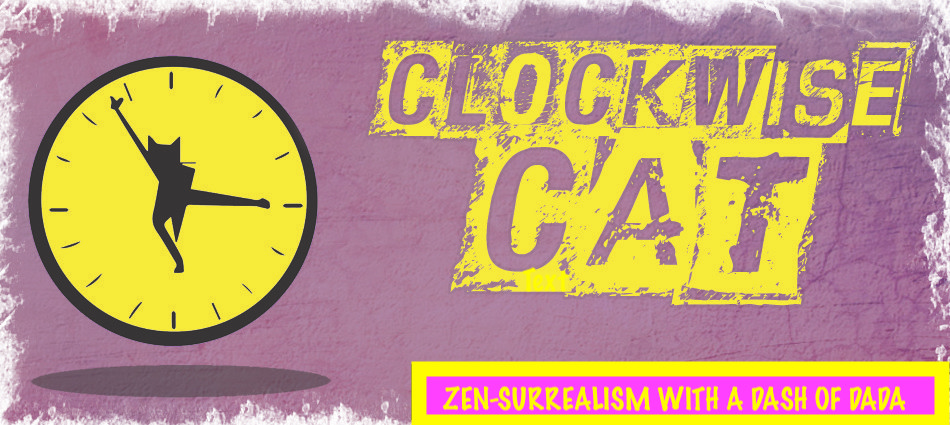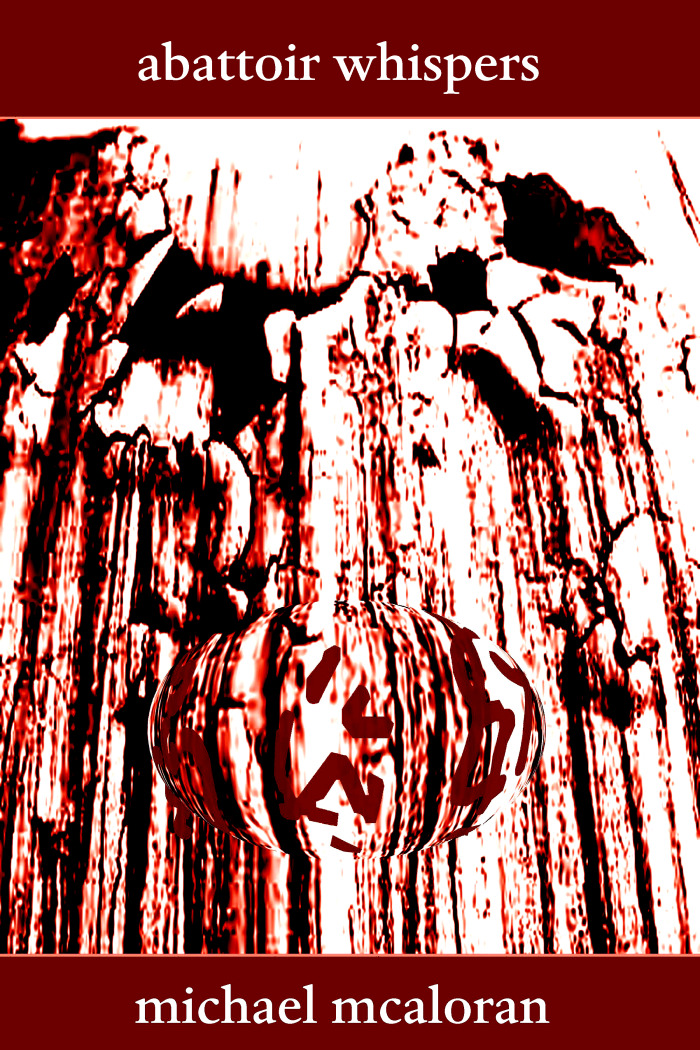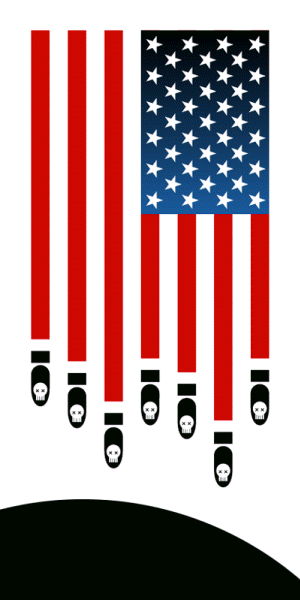
Michael McAloran’s Abattoir Whispers (Book Review) by David McLean
This is one of Mc Aloran’s best books of prose poetry. The text, as often is the case, providing almost metatextual commentary on the thought, fragmentary since it is operating without the standard illusory surface effects of the allegedly “internal” psychic language that create the aura of normalcy that surrounds the drooling about seagulls trees and suffering that passes for poetry with the beastly poetic das Mann.
Temporality is often responsible for the internal commentary, perhaps Mc Aloran’s superego (good luck to him).
“I inhale the birthed treachery of the air, I inhaled it, as if coming up for breath from having been drowned, skull-death of obituary, dragging it kicking and screaming from the beginning…no I do not wish to leave, yet I do not want to stay, either, something has shaken the fruits from the razor tree, they sparkle upon rent soil in the moonlight,”
Origins are important in poetry, as in philosophy. One wonders what the passing by of the last god, in Heidegger’s Contributions to Philosophy, would look like, would feel like. Would it be the spray of light that hits the broken brain in a nascent psychosis? The steadfast reticence that stays silent be gibbering to itself? The ground upon which one “stands” before leaping into awareness of Seyn “is” the abyss, but the abyss is not the void. And so often in poems the fucking void is the problem.
The void is not a place. It is not a cozy resort for “madmen” to sneak away for a quiet linguistic wank before breakfast. The problem of meaninglessness is not that there happens to be a shortage, a defective supply of meaning. The problem is more fundamental.
“I am the aborted sun, I am the disfigured sneer, I am the slash-hook of my emasculation ejaculating the blood of one thousand ruptures, as the winds subside, someone has locked the door to this barren room, as I no longer exist, nor have I ever been, a smear of blackened bruised flesh, draped in the nightscapes of this foreign absence…”
To be in the world is to be dispossessed, dislodged and indeterminate. The Greeks looked at the world with wonder, as children might. We look at the world, Heidegger says, with foreboding, we are fucking worried about it, or, as Mc Aloran might say:
“I am nothingness, I ejaculating into the void with streaks of dissipating words, my death, my death my starry death I am alone, no not else, ever else, the violence of existing, the ferocity of birth, a cold stone hearth in which the bones of a child rot unto idiocy, I too am that idiocy, that murder, that abortion, the time taken to un-learn, to forget, dragging as if to speak were enough, as if a whisper could caress, so sayeth the walls, those eternal walls, I collapse I reach I am blind, paralysed, paralysed by dread, beginning now and forgetting for all time, somehow the speech never catches up, as if I ever listened, the maggot of time selects, easing throughout the flesh to subjugate muscle, dragging a million possibilities along with it -as if it mattered”
because there are more important things to think about than beginnings and ending, there is the sullen glory of all the empty:
“I devour my own shadow, I scrape at this flesh that I cannot bury, I observe my scars in wonder, I cannot then see, I suffocate on the bile of my dying, something grips me, viciously and I expire, void of my ineptitude, I am this flesh, this meat, this absolution, this waste…I smile…”
The question asked here is not the leading question of western thought, but the basic question, what is being, here reformulated as it must be, “What is this shit?” Not, “What are all these horrors?”, but, “What is this disgusting?”
“I lock the door to my own self, swallow the razor key, inhalations of razor blades and the stretch of the sunlight upon spent bones, laughter is death, my shit is death, my cum is death, I laugh at death, my absence, fruitless either way, I have ceased in my dreaming, my longing, I am dead for all time, either way…”
This book might in fact document the process whereby one becomes divine, and becomes the sterile progress of the last god as he passes. Anyway, you should get the book, which is on sale here http://www.paraphiliamagazine.com/oneirosbooks/abattoir-whispers/.
Author bio:
David McLean is from Wales but has lived in Sweden since 1987. He lives there with his dog, Oscar, & his computers. In addition to various chapbooks, McLean is the author of seven full-length poetry collections. The last four of thse are from Oneiros Books and called NOBODY WANTS TO GO TO HEAVEN BUT EVERYBODY WANTS TO DIE (June, 2013), THINGS THE DEAD SAY (Feb, 2014), OF DESIRE AND THE LESION THAT IS THE EGO (May, 2014) & ZARA & THE GHOST OF GERTRUDE (Oct, 2014). More information about McLean can be found at his blogs http://mourningabortion.


